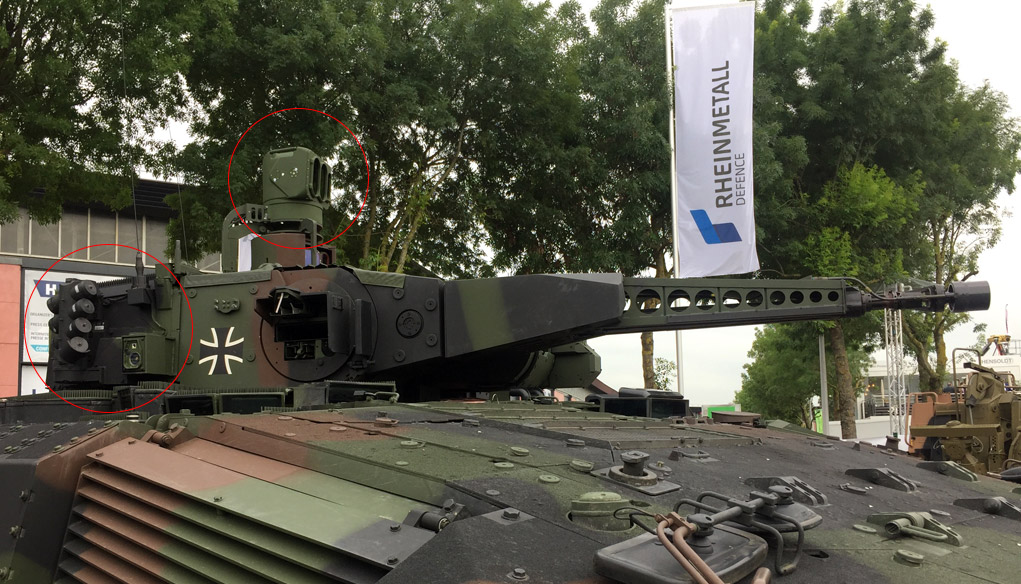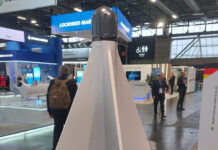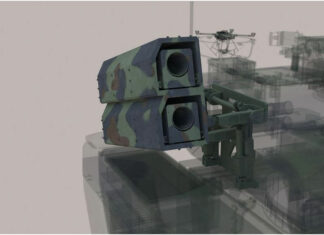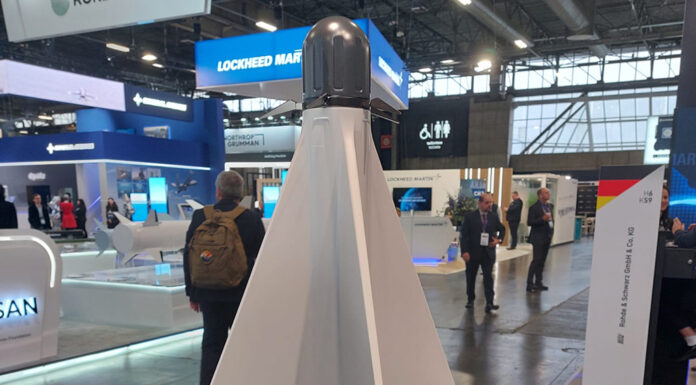The HENSOLDT company has delivered the 300th active protection system (soft kill) equipping the German Puma infantry fighting vehicle. In total, the company is under contract to deliver 342 MUSS equipment sets by 2020 to PSM, the vehicle manufacturing JV.
MUSS has also been selected for testing by the UK Defense Science & Technology Lab (DSTL) under the MEDUSA APS study, delivered by QinetiQ in the UK and Australia. In addition, MUSS was successfully integrated by BAE Systems onto its version for the British Army Challenger 2 MBT modernization capability and extensively trialed by serving British Army personnel during the Op User Trials.
Similar defensive aid systems (DAS) used on aircraft and helicopters, soft-kill APS such as MUSS increase the platform’s level of protection without adding significant weight. MUSS drastically reduces the likelihood of a hit by antitank guided missiles or laser-guided ammunition. It achieves a level of protection which is not possible for the same total weight with passive armor while avoiding collateral damage.
[wlm_nonmember]Click to open the subscriber-exclusive version of this post [/wlm_nonmember]
[wlm_ismember]
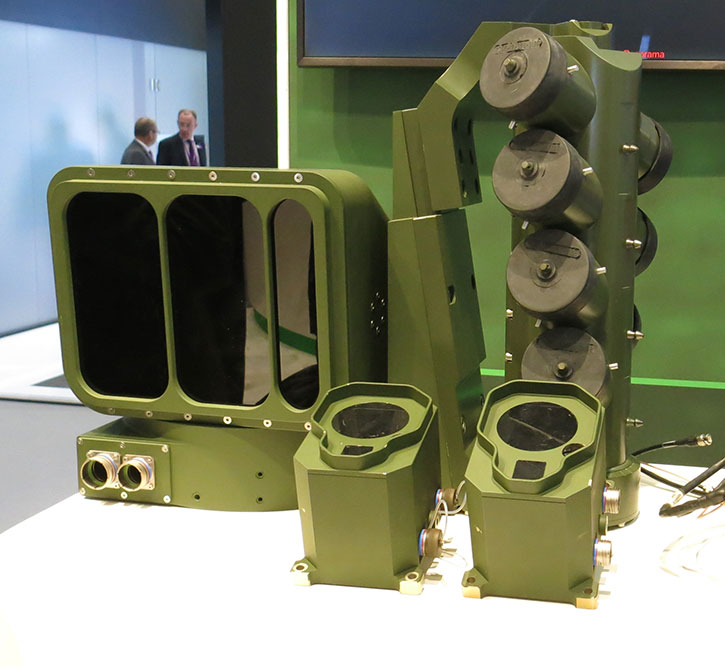
Each MUSS system consists of four warning sensors, a central processing unit, an infrared jammer head, jammer electronics, and smoke grenade launchers. The warning sensors detect approaching missiles and laser beams aimed at the vehicle. These signals are processed at the central unit which activates the infrared jammer or initiates pyrotechnic countermeasures and a smokescreen to block or interfere with the incoming missiles’ guidance.
An active protection system like MUSS defeats threats before they strike a vehicle, by sensing the threat and defeating it using a ‘soft’ response, based on jamming or obscuration of the guidance mechanism. The advantages of soft kill are reliance on passive sensors, thus not exposing the vehicle to electronic detection (ESM), unlimited engagement capacity (independent on the number of countermeasures ready for use in hard kill systems), its ability to defeat the threat at an extended range, and elimination of collateral risk around the vehicle, either to friendly troops or civilians that may be exposed nearby.
The deployment of the jammer is also discrete, operating with a short activation time, undetected to visible or thermal image sensors. Contrary to hard-kill systems, soft kill countermeasures like MUSS are not effective against unguided threats such as rocket-propelled grenades or radiofrequency or laser beam-riders. Furthermore, different missile generations require specific engagement protocols, therefore, effective threat defeat by soft kill must rely on accurate threat classification and identification. To minimize such errors, multi-spectral screening and pyrotechnics are used providing relatively effective protection against a wider threat.
The first of 350 Pumas ordered by Germany was delivered by PSM in 2015. PSM is the joint venture established by primes Krauss-Maffei Wegmann and Rheinmetall to manufacture and support the new vehicle. The full order is expected to be completed by 2020. To date the German Army is the only operator of Puma, the vehicle is one of four AIFVs considered by the Czech Republic as a successor to BMP-1.[/wlm_ismember]

